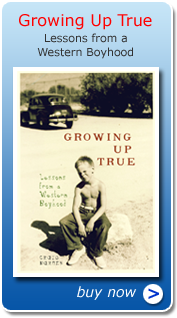The debate about the Iraq war was not so much what would happen during the battle, but what would happen afterwards. No one doubted the strength of the US military. No one doubted that aircraft carriers and laser-guided bombs would annihilate a weaker Iraqi army. Protestors did not argue that we were militarily weak, but that Mr. Rumsfeld and Mr. Wolfowitz underestimated the chaos and confusion that would result.
The critics doubted whether the war cabinet had any idea the fury which would be unleashed when fundamentalist clerics saw American tanks in the holy places. The critics said further that "having broken the law ourselves" we would make it easier for others to break the law. If the US goes to Baghdad unprovoked, why would terrorists not come to Washington unprovoked? Critics wondered, not whether we could win a war, but whether it would be wise. That is still the debate. Was it wise? No one knows the answer.
Mr. Bush said in his election campaign two and a half years ago that he did not intend to follow the Clinton strategy of "nation building." He then demonstrated in Afghanistan that he has little taste for mediating tribal loyalties or economic development. In Afghanistan therefore today women are being oppressed again, warlords are reemerging and there is next to no US reconstruction going on. The pre-war critics were concerned that this neglect would be repeated in Iraq.
Mr. Rumsfeld flew his hand-picked ruler, Mr. Ahmed Chalabi into the country with a personal army of 700 men and a mayor-designate for Baghdad, a certain Mr. Zobeidi. The people of Baghdad don’t know Mr. Chalabi because he has been completely out of the country for 45 years, since the age of 13. Rumsfeld knows Chalabi and Chalabi knows Rumsfeld, but the Iraqis don’t know Chalabi. If Rumsfeld is picking, it doesn’t matter; but if Iraqis are picking, it matters a great deal. Unfortunately for Rumsfeld, the Iraqis are insisting that "Operation Iraqi Freedom" means that they get to pick. Iraqis didn’t know Mr. Chalabi’s designated mayor, Mr. Zobeidi, either, but Zobeidi was going around town meeting with Sheiks, tribal chieftains, making promises of jobs, saying that he is backed by the Americans. Then Mr. Zobeidi got so out of hand that the US Army had to disavow him, saying, in effect, democracy means you pick. This week they had to arrest him, in effect, arresting their own guy.
In most of the world, political power derives less from concepts like democracy and freedom than from personal loyalties. The Chalabi faction are therefore selling their wealthy old Baghdad family name and Shiites and Sunnis are proclaiming their competing direct lines from the Prophet Mohammed. Kurds are proclaiming that their Islam is more direct than Arab or Persian Islam and Iranian Islamists are saying no, no, to the contrary, all Islam must unite against America. Somehow, in the midst of this, in a country the Americans just "pacified" one million Shiites gathered to protest against Americans. Iraq is a stew pot and all over the country organizers are racing about throwing in cell phones and bribes and oil jobs and fiefdoms and severe doses of holiness. Mr. Rumsfeld and Mr. Bush have lit the fire under the stew but someone else is stirring it.
The question will soon become whether the US team has the will, the knowledge, the language, the diplomatic skill, the patience, the money, the saint-like restraint, that will be required to create democracy. If they do not, the military victory will gradually be eroded by political chaos. That of course was the gamble from the beginning. Mr. Bush slides over the gamble with presidential swagger but the outcome is already, according to The New York Times and Washington Post, being anxiously watched by Pentagon generals.
They watch as the president must now lead to somewhere he has never gone before, depending upon people like Chalabi whom he has not known before, to pacify a population he has neither studied nor been interested in ever in his life time. He must turn on the electricity and get the water running and rebuild hospitals and schools and sort out fanatics from moderates; he must sell oil, collect taxes, create a new law and then enforce it. He must listen like a saint and speak like a prophet. He must do it for months, or maybe years. It is a tall order. It is time for a tall man.
